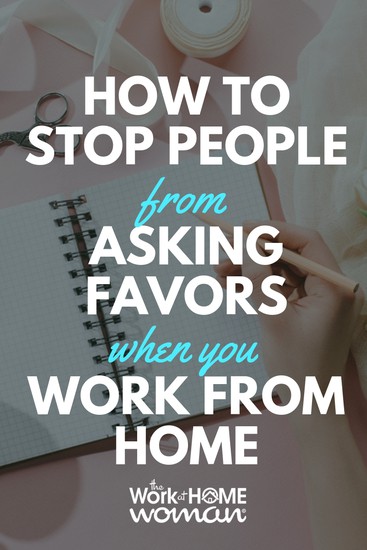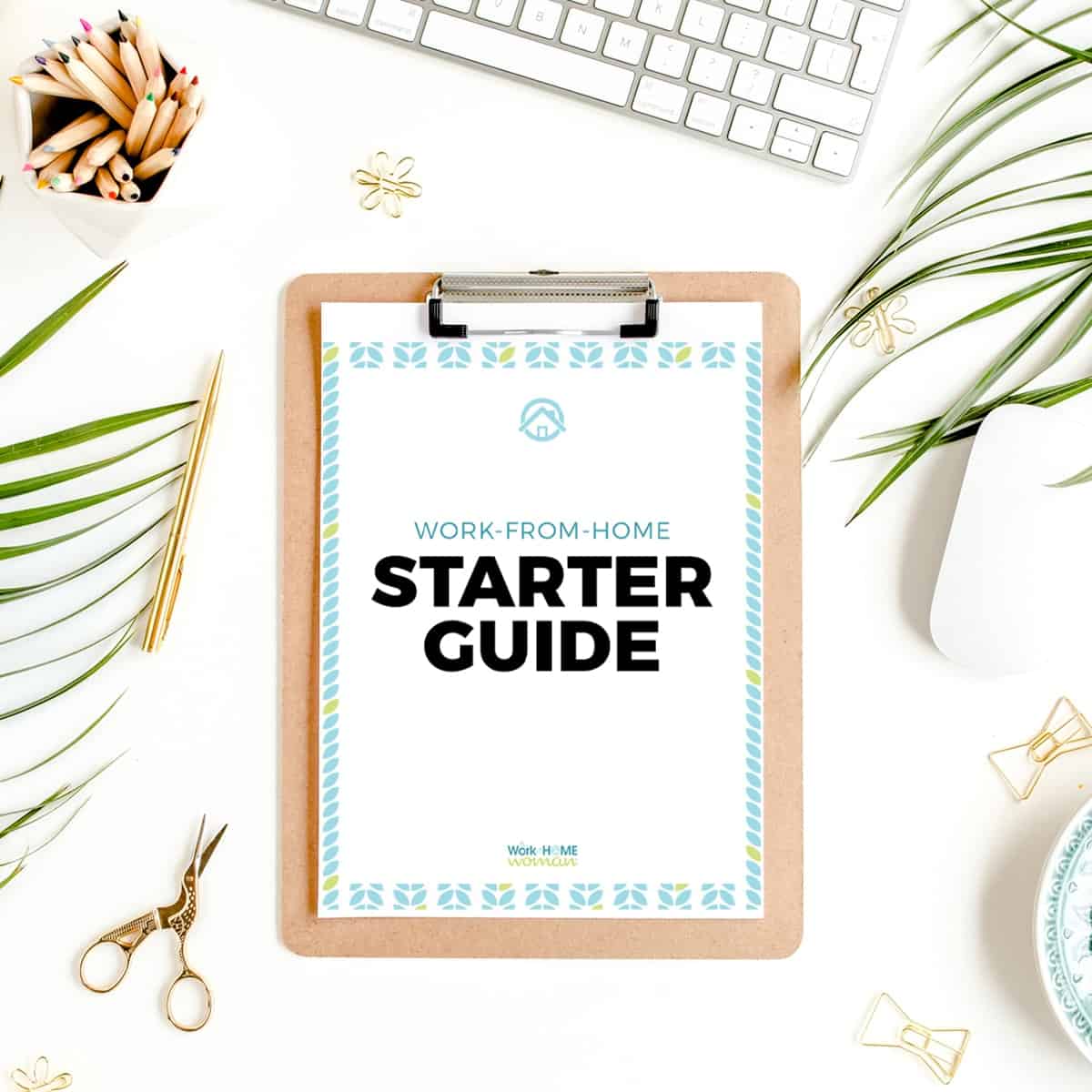Perhaps the most frustrating part of working from home is trying to get your family and friends to understand that you really are working. Because of this misunderstanding, they think it’s okay to ask you for last-minute favors or to ask you to run errands for them that can only be completed during the workday “because you have a flexible schedule.” And, worst of all, dropping by unannounced because they know you’ll be home and they’re in the mood for a visit.
 It’s hard to say no to these requests and drop-by visits. You want to be a supportive friend, and you don’t want to be (or feel) rude. At the same time, you genuinely are busy, and you genuinely have more important things to do than pick up someone’s dry cleaning or wait all day for a package, electrician, or cable guy. You definitely can’t afford to be dropping your work simply because someone feels like having a chat.
It’s hard to say no to these requests and drop-by visits. You want to be a supportive friend, and you don’t want to be (or feel) rude. At the same time, you genuinely are busy, and you genuinely have more important things to do than pick up someone’s dry cleaning or wait all day for a package, electrician, or cable guy. You definitely can’t afford to be dropping your work simply because someone feels like having a chat.
If you want your friends to stop taking advantage and understand that you really have responsibilities, you need to find a healthy, friendly, and direct way to express this frustration. Otherwise, you’ll never get your business off the ground, and you risk alienating people you care about when you do finally blow up at them for not respecting your time.
Here’s How to Stop People From Asking Favors When You Work-From-Home:
1. The Best Offense is a Good Defense
Cut everybody off at the pass by pre-empting the pass, to begin with. Send out an email, post a note on Facebook, or leave a message on your voicemail – saying that you love everybody and that you want to be there for them, but unless plans are made in advance, you aren’t available for last-minute requests during your working hours.
Make sure you include those hours in the email or post so your friends can’t claim ignorance of when you are “actually” working.
2. Call First
You know the “new baby” rule, right? Whenever a couple has a new baby, you call before you stop by. That way you don’t risk waking a “just-put-down” baby, and you give your friends time to get themselves together and ready for your visit.
Make calling first, a rule for you as well. You can include that rule in the email we talked about as an … “If it is an emergency or can’t be avoided, please call first. That way there’s no risk that I’m in the middle of a meeting or on an important call with a client when you stop by because I’ll be expecting you.”
This is a really easy rule to enforce and even condition into people. Because when someone does stop by (there are always a few people who think your polite requests are just for everybody else), you can say, “Wow, I wish you would have called first so that I could have made time for you.”
3. Don’t Let Them In
The act of stopping or dropping by does not automatically equal being invited in and being given undivided attention. Everybody knows this because dropping by means taking a risk that someone isn’t home. So if someone knocks on your door while you’re working, you do not have to invite them in. You can step out on to your front porch or into your building’s hallway and chat for a few minutes and then thank them for stopping by and go back inside.
You can explain that you’d invite them in, but you’re in the middle of a work project and have materials everywhere. Even if they say, “Oh, I don’t mind,” you can say, “I know, but I do.”
For that matter …
4. Don’t Answer the Door
This is going to feel incredibly rude, but it is still an option – especially if you aren’t working in a place that is visible from a porch or the outside. It can be a great way to deter unexpected visitors. If you think it’s a package and it turns out to be a friend, you can employ tips #2 and #3 to keep them from completely invading your space.
If they can see you sitting at a desk and working from the door, you can wave and then send them a text saying, “Sorry, can’t come to the door! Busy on a project. Call next time, and I’ll try to shift some things around.” They might get irritated or even tell you that they are offended, but remember: They’re the ones who aren’t respecting your time.
Conclusion
Have you had to deal with friends, family, or neighbors dropping by unannounced, because they don’t understand what you’re doing, or worse, don’t take your work-at-home status seriously? How did you solve the problem?
Erin Steiner writes about topics ranging from personal finance and helping people qualify for a federal auto loan to popular and geek culture.







I’m going to try to stay kind, but sometimes it’s like they really think that there stuff is way more important than mine! Makes me wanna say bad words and hurt things!
This is definitely a challenge when you work from home.